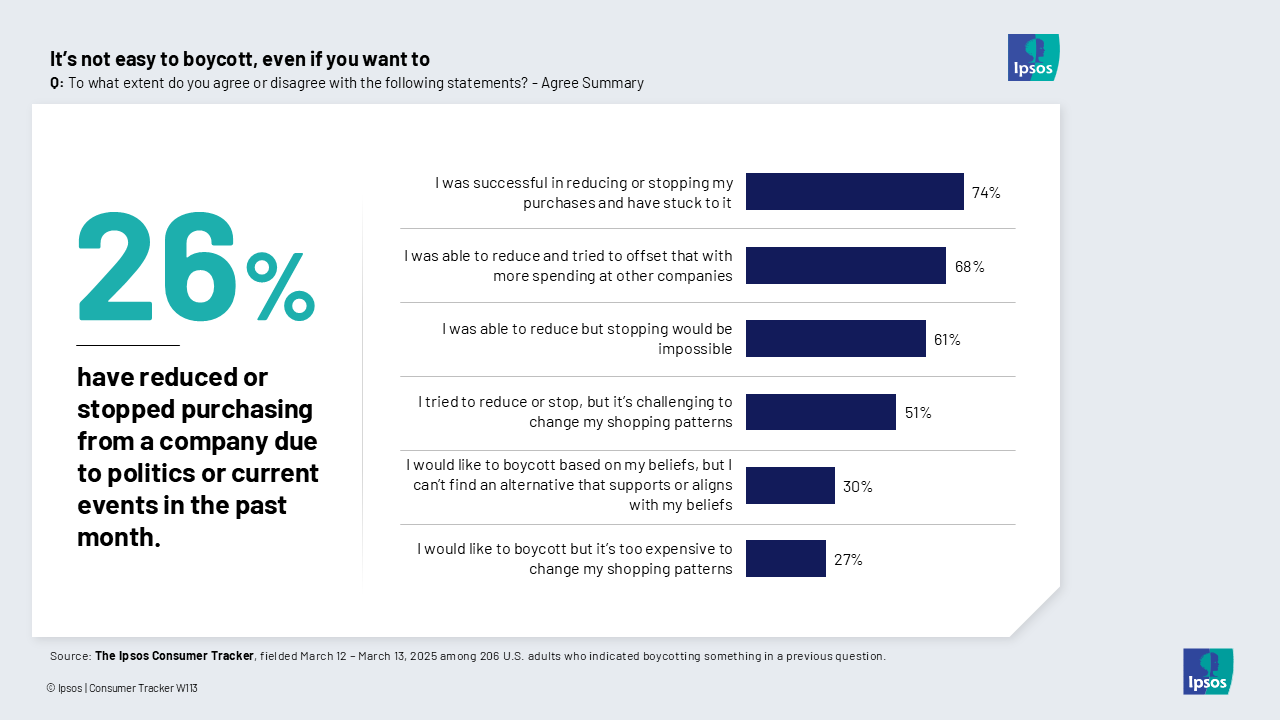It's not easy to boycott, even if you want to
The Ipsos Consumer Tracker asks Americans questions about culture, the economy and the forces that shape our lives. Here's one thing we learned this week.

Why we asked: There’s lots of chatter around these days about boycotts and counter boycotts. But, we wondered, how big of a say-do gap is there? If you’re going to stop shopping at a company because you feel it no longer supports your values, how easy is that? Certainly some boycotts have had pronounced and obvious impacts on the affected brands over the years. But are some products, services and stores easier than harder to replace than others?
What we found: One in four Americans say they have stopped purchasing from a company due to politics or current events. But it turns out, it’s not so easy to boycott.
Out of the 26% who have boycotted, 74% say they were successful in reducing or stopping and have stuck to it. But right below that, 61% said they reduced but stopping would be impossible. Another 51% say they tried to reduce or stop but it’s challenging to change patterns. 30% can’t find an alternative that aligns better with their values than what they’re trying to boycott and 27% can’t afford the alternatives. Perhaps most interesting are the 68% who said they both reduce spending at one place and try to offset with more spending at places that better align.
Regardless, with a long-standing, growing trend (globally and locally) toward people buying from brands that reflect their values even if it’s hard, the fact that so many customers are trying to boycott in a given month should give brands some pause, during which they hopefully listen and reflect on the messages from their customers as they both customers and brands try to navigate and know our new America.
More insights from this wave of the Ipsos Consumer Tracker:
March Madness continues its plateau
There's a negative trend in words we use to describe AI creations
Why do we worry so much about AI?
The Ipsos Care-o-Meter: What does America know about vs. what does America care about


